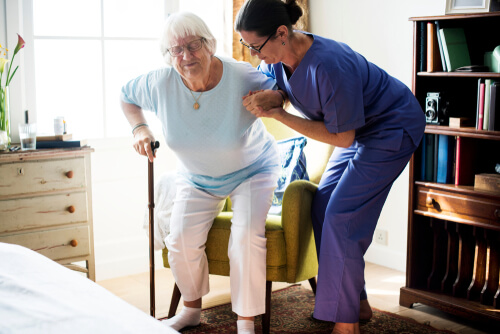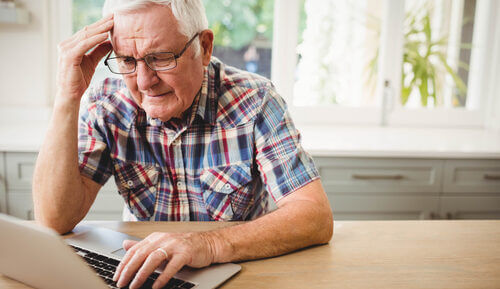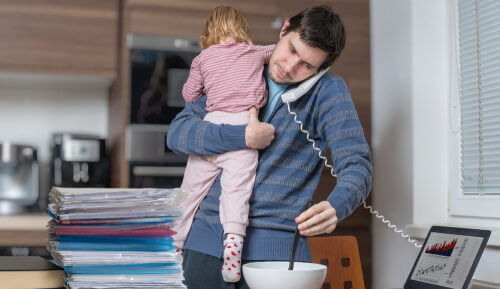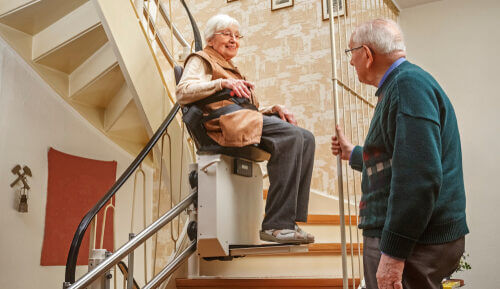
Fall prevention is very important as a fall can have a serious impact on a person’s health. It is particularly worse for older people as we become frailer and bones become more brittle. Falling can lead to, among other health complications, broken bones and trauma which at old age will take you longer to recover from and could lead to further problems, such as reduced independence.
Making simple changes to your home and your daily routine can greatly reduce the risks of having a fall and eliminate potential hazards, making later life not only safer but more enjoyable as the fear of falling will be lessened.
According to the NHS, about one in three adults over the age of 65 who live at home have at least one fall per year, with around half of these having more frequent falls.
In people over the age of 75, falls are the most common cause of injury-related deaths in the UK. It is therefore crucial to consider taking steps to reduce hazards in the home and reduce the risks as much as possible.
Why do falls happen in old age?
Falls can happen for a number of reasons and to people of any age, but as we get older the risks increase due to the ageing process.
Causes of falls include:
- Weakness in muscles
- Balance issues
- Poor vision
- Health conditions which can lead to dizziness and loss of consciousness
- Side effects from medication
- Alcohol consumption
- Wet floors
- Poor lighting
- Carpets or rugs
- Going up and down stairs
- Rushing around the house
What can falls lead to?
There are a number of health implications which can come from falls, including serious injury, reduced independence, multiple falls. It can also have an impact on family members and friends as they may worry constantly, which can be difficult to cope with.
In addition to serious injury, a fall can lead to increased fear of falling which can in turn cause a person to lose confidence in themselves. Sitting still for long periods of time is harmful and being reluctant to get up and move around due to a fear of falling can result in muscle deterioration as they are not being used.
If your muscles are not being used, they will become weaker and it will be more difficult to maintain your balance and mobility. As a knock-on effect, this can lead to more falls and ultimately injury and reduced independence, as well as constant worry for family members.
Falls are particularly dangerous to people with Osteoporosis, a condition that weakens bones which makes them more likely to break. For people with this condition, a fall is more likely to result in fractures such as a broken hip or wrist.
Tips to prevent and reduce the risks of falls
There are several steps you can take to avoid falling, both by ensuring your home is safer and change your daily routine.
1. Speak to your GP
A good start is to have a discussion with your GP about preventing falls in the first place, or how to reduce further falls. Your GP will be able to advise on and review medication as well as conducting checks to test your balance and muscle strength.
If you have a health condition, your GP will be able to provide valuable information on how the condition and its progression may increase the risk of falls. Additionally, your GP can refer you to other relevant health professionals if needed.
2. Stay active
Regular exercise and movement will help you retain strength and balance, which reduces the risk of having a fall. This could be anything from walking to training programmes.
Physical activity will also help your blood flow and has a positive impact on mental wellbeing.
3. Remove hazards in your home
Removing potential trip hazards at home is key in preventing falls.
- Remove furniture, items and cables from high traffic areas
- Secure loose rugs to the floor. Alternatively, remove them altogether
- Use non-slip mats in your bathroom and shower
- Use a seat and/or handrail in your shower
- Repair loose flooring, such as wooden floorboards and carpet immediately
- Spilled liquids, grease and food should be mopped up immediately
- Organise your home to avoid stretching and bending
- Keep rooms well-lit, particularly if you have poor vision
- Place a night light in your bedroom and bathroom
4. Get help to do things safely
It can be difficult to accept that you can no longer do everything on your own. However, if you cannot complete a task safely it is always best to tell someone about it and ask for help.
If you are unable to do certain things safely, you may be able to get help with this through your local authority. Requesting a Needs Assessment is free and your local authority may arrange support to help you in your daily life.
5. Wear well-fitting clothes and shoes
It may seem trivial, but not wearing loose-fitting, trailing clothes that may cause you to trip is a good way to avoid having a fall. Further, wearing shoes that fit properly and support your ankles will help you maintain balance.
6. Adapting your home
Adapting your home can go a long way to help you prevent falls and also significantly increase your quality of life. Home adaptations can help you stay independent for longer and make it both safer and easier for you to move around the home.
Depending on your needs, home adaptations can include things like grabrails, a stairlift, lowering kitchen counters and more.
Even small changes can make a huge difference and you may be able to make changes to your home for free. Minor adaptations to your house, up to £1,000, should be covered by your local council. There are also grants available for larger adaptations.
For more information, read our guide to home adaptations.


